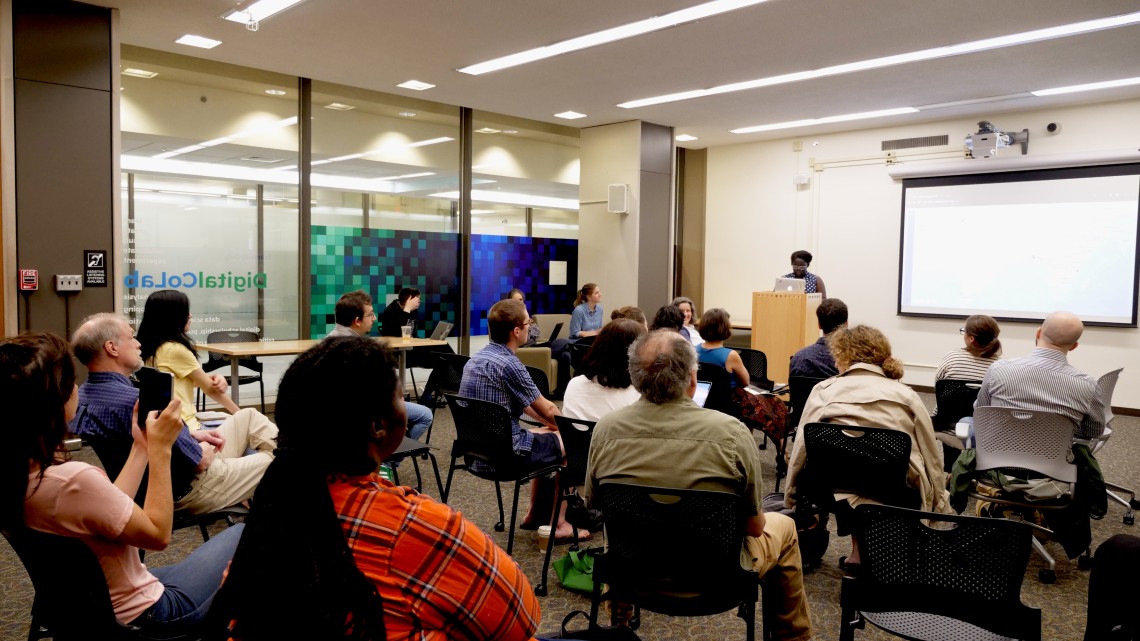
A final presentation titled “(Thoughts Towards) A Mapping of Global Poetics” by Ama Bemma Adwetewa-Badu, a 2019 fellowship recipient and now assistant professor at Washington University in St. Louis.
News directly from Cornell's colleges and centers
The Digital CoLab: Elevating skills, building community
By Jose Beduya
Home to Cornell University Library’s Digital Scholarship Services, the Digital CoLab on the 7th floor of Olin Library stimulates innovation in research and teaching while building connections among scholars across campus. It follows one simple formula: “People over projects.”
It’s an approach adapted from influential digital humanities scholar Miriam Posner, explained Eliza Bettinger, the director of Digital Scholarship Services and head of the Digital CoLab.
“We prioritize people, and that means helping them learn how to learn digital skills and tools and helping them feel connected to each other,” Bettinger said. “What’s fulfilling about this work is really keeping the human in the digital.”
With an emphasis in the humanities and interpretive social sciences, the Digital CoLab provides Cornell students and faculty with consultations, workshops, teaching support in the classroom, and individualized assistance on digital tools and methods—from computational text analysis (also known as text mining) to creating online exhibits and collections.
The Digital CoLab also runs the Summer Graduate Fellowship in Digital Humanities, an immersive program where selected Ph.D. students explore digital scholarship through collaborative workshops, readings, discussion and co-working on independent projects.
“We’re a hub for supporting a wide range of digital methods for research,” said Iliana Burgos, emerging data practices librarian.
“We strive to build community among practitioners across campus,” she said. “We practice a co-learning model to support skill-building. As students learn digital skills, they share insights with each other and with us instructors. We all learn alongside each other as we work through the highs and lows of creating digital work.”
Read the full story on Cornell University Library's news page.
Media Contact
Get Cornell news delivered right to your inbox.
Subscribe